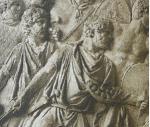You are here
Presidents, leaders and heroes of the republic
Mar 10,2019 - Last updated at Mar 10,2019
As King Farouk of Egypt boarded his yacht to go into exile in 1952, he supposedly predicted that in 50 years there would be only five kings left in the world: the kings of spades, diamonds, hearts and clubs, and the king of England.
Farouk was wrong about this, just as he was about pretty much everything else. Fifty-three years later, I was privileged to take part in a conference held in Paris, which studied Arab monarchies because they proved durable and even more responsive to their populations than Arab republics, which failed to qualify as such and had to be renamed quasi-monarchic regimes.
You see, monarchies that survived evolved from within their societies or they developed a symbiotic relationship with these societies. They maintained traditional communication channels with their populations, which allowed them to keep their finger on the people’s pulse.
Conversely, Arab republics were “progressive modernisers”, who eradicated the obsolete institutions of the past, which, in their view, allowed their countries to fall under the yoke of imperialism. Their mantra was “old is bad, and badmouthing the West is good”.
Two unfortunate factors shaped the new regimes: The only people with the organisation, muscle and desire to overthrow the old regime were middle-rank military officers who were barely literate. Of all the educated people in the Arab mashreq, only two heads of state in the fifties spoke a second language or had ever travelled abroad: King Hussein and president Camille Chamoun of Lebanon.
Moreover, the military functions by orders, not town hall debates, where every opinion is heard and respected. Hence the slogan: “The revolution is more important than democracy,” raised by Egypt’s Gamal Abdel Nasser, as he purged his president and superior officer Mohammed Naguib.
From then on, the story is familiar. The officer who seizes power is always an alpha-male, self-absorbed, megalomaniac and paranoiac. In due course, this person, who starts off as The champion of the ordinary man, comes to see himself and insist on being seen as a superior being. Muammar Gaddafi, for instance, no longer deigned to look at his interlocutors.
The leader’s persona becomes eternally synonymous with the nation.
Consequently, the Middle East, with young populations predominantly under 20, is ruled by some of the oldest heads of states in the world, some well past senility. One candidate for reelection in fact, is in the twilight zone, clearly beyond the realm of the living but not quite yet among the dead.
Ironically, the leaders’ entourage perpetuates the myth, initially to survive, then later to buy time while each one of them manoeuvres frantically to align himself as the successor when the ruler permits death to embrace him. This situation would be farcical were it not tragic.
Still, one important conclusion reached in Paris was that, in the absence of democracy, the stability of Arab regimes is a measure of their ability to preserve traditional communication channels with their populations. In other words, the ability of the monarch to be his society’s “sheikh mashayekh”, or first among equals.












